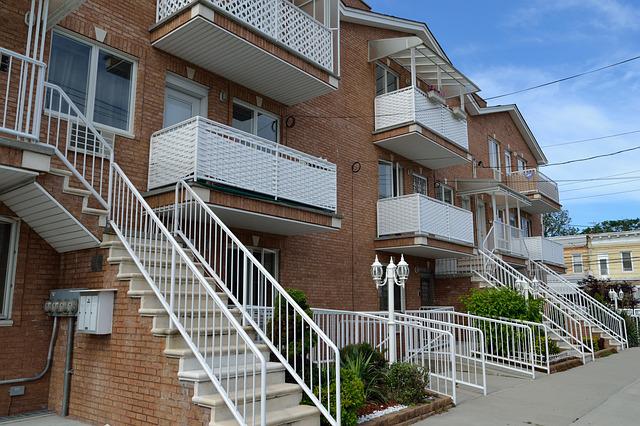The Home Seller’s Guide: 10 Crucial Tips for Selling Your First Home

How does selling your housework?
Well, selling your first home isn’t like holding a yard sale. A simple overlooked mistake could cost you tens of thousands of dollars and impact your financial well-being for years.
Not to mention, the process of selling a home is even more stressful than buying one. Sometimes, waiting for the right buyer can take longer than expected, which is why some homeowners consider alternative options.
For example, if you’re in a hurry or need to move quickly, working with a trusted house buyer can streamline the process and help you avoid the uncertainties of the open market.
But if you know what to expect, you can mitigate much of the pressure and come out on the other end with a good sale price and a new home.
As a first-time home seller, you’ve got your work cut out for you. Our home seller’s guide can help. Here are 10 crucial home seller tips.
#1 Know Your Local Market
While certain trends emerge in the national real estate market, your neighborhood is an entirely different ballpark. A national seller’s market could be a buyer’s market in your region. And if you have the luxury of choosing when to put your home for sale, you’ll want to cash in at the right time.
Taking advantage of a seller’s market leads to higher sales prices, more offers, and a brief listing period. All of these trends mean more money in your pocket and less time attracting potential buyers.
Read more now about the benefits of the timing of your home sale.
#2 Sell Your Home in Spring
When temperatures start to cool down, the real estate market does, too. Home buying is exhausting enough without enduring icy roads and harsh chills. You can list your home during winter if you must, but fewer buyers will lower prices across the board.
In contrast, the market starts heating back up in the spring. According to national statistics, homes listed in early May sell for $1,600 more and six days faster than the average.
It’s a short window. Wait too long and other home sellers will flood the market, increasing your competition.
#3 Hire an Agent
There are two ways to sell a home: for sale by the owner or through an agent. But if this is your first home, there’s only one.
With no home selling experience under your belt, an FSBO sale would be destined for failure. Not even an FSBO guide to selling your home could help you there.
Find agents with experience in your surrounding neighborhood, then interview each option. Remember you’ll be working closely with the agent so you’ll want someone you can trust.
#4 Consider Your Living Situation
When you sell your home, it stands to reason you’ll need somewhere else to stay. The question is if you should buy a home in advance or after making the sale.
Buying a home before you sell your first means you’ll be dealing with two mortgages. On the upside, the home selling process will be less stressful as you can show the home without inconveniencing yourself. You’ll also have a permanent place to live.
If you sell your home first, you’ll need another place to stay. Family and friends can help but remember you’ll also need a place to store all your possessions. At the very least, you’ll end up renting a storage unit for the foreseeable future.
#5 Get an Appraisal First
Your home may not be worth what it once was. If you haven’t kept your repairs and renovations up-to-date, you could discover your home is well below the value you expected.
By getting this information in advance, you’ll be better prepared to answer the question, “is now the time to sell my home?” Households with less liquid to complete the move should estimate the payout of their home’s equity.
#6 Set the Right Price
With the help of your real estate agent, you’ll come to an estimated listing price based on comparable houses in your neighborhood. Use that listing price. Full stop.
You may be tempted to squeeze in an extra $5,000 or, heck, even $10,000, just to see if someone bites. That greed can cost you. Price yourself out of the market, and you’ll pay more through additional mortgage payments and lost buyers.
#7 Make Essential Repairs
As much as we all love our homes, we don’t always treat them right. But even if you’re happy with a creaky door or malfunctioning HVAC, that doesn’t mean your buyer will be.
Repair the important stuff. You’ll get most of the money back through equity by selling your home at a competitive price point and in good condition. Otherwise, you’d have to sell low — and to a smaller number of less-selective buyers.
#8 Stage Your Home
Professional home staging can cost an arm and a leg. But you can achieve similar results without paying a penny. And if you want a quick sale, it’s worth the work.
Declutter your home and clean everything from top to bottom. If you’re like most people, you’ve packed your home with new possessions throughout the years. Rent a storage unit to hold unnecessary extras, especially large items like furniture.
Now you’ve got more space to let your home do the talking.
#9 Play Ball
When you get your first offer, it may be below your listing price. Buyers want to save money as much as you want to make money. Unfortunately, few homeowners get everything they’re asking for.
If it’s an insulting offer, counter with a compromised middle ground. You can also suggest the addition of other terms at the lower price to make it worth your while.
Remember that waiting for a better offer could mean more time on the market, more mortgage payments, and less money overall.
#10 Scrutinize Homebuyers
While it’s best to be flexible with offers, don’t be flexible with a buyer’s ability to pay. Only work with qualified buyers who have either a mortgage pre-approval letter or proof of funds.
Some buyers may also have contingent approval, meaning they can only afford the mortgage in a certain situation, such as the sale of their own home.
You might not have to worry about these things if you choose to sell your home to companies like Cincy Sell For Cash (you can visit their website at cincysellforcash.com) as they are qualified professional buyers. On top of that, homeowners tend to find selling their property to such companies way easier compared to selling it the traditional way.
Homebuyers without the approved ability to pay in a timely fashion aren’t worth your time. By working with them, you put yourself at risk.
Moving Up With the Home Seller’s Guide
Even in the best of circumstances, a first-time home seller doesn’t have it easy. But with the help of the home seller’s guide, you’ll be in a better position to ensure a financially sound, relaxed transaction. Rely on the advice of your real estate agent for any concerns not covered here.
Looking for real estate advice, or the latest in financial security? You’ll find that and more across our site.





